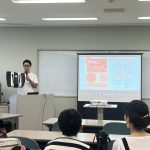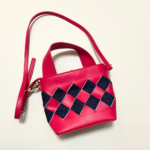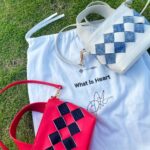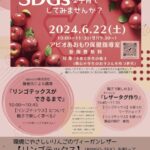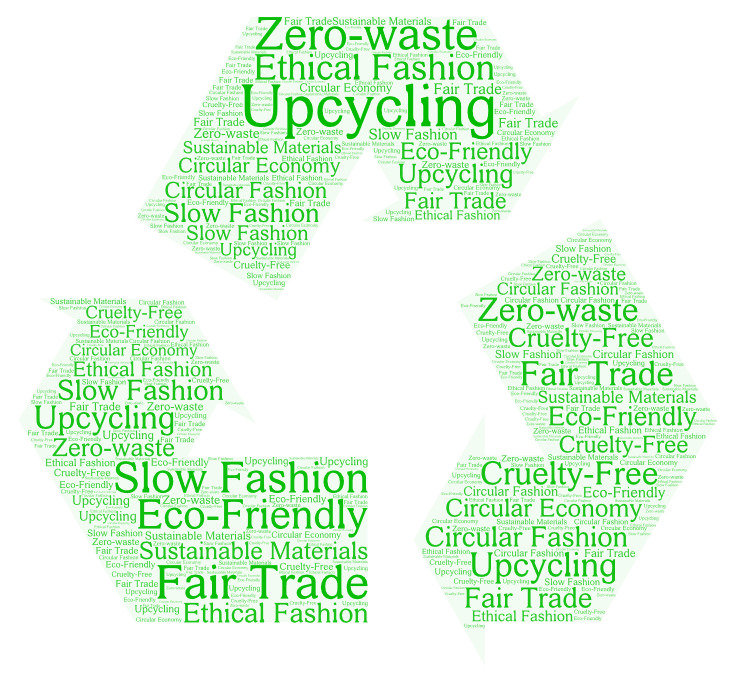 In recent years, the fashion industry has undergone a significant shift towards sustainability , and with it new concepts and terminology have emerged . Terms such as upcycling, slow fashion, and circular fashion have become buzzwords in the fashion world, but they can also be confusing for those who are not familiar with them. However, understanding these terms is crucial for both individuals and consumers who want to contribute to sustainability through fashion. In this blog post, we will delve into these new sustainable fashion concepts and explore how they can inspire us to be more mindful about the environmental impact of our fashion choices.
In recent years, the fashion industry has undergone a significant shift towards sustainability , and with it new concepts and terminology have emerged . Terms such as upcycling, slow fashion, and circular fashion have become buzzwords in the fashion world, but they can also be confusing for those who are not familiar with them. However, understanding these terms is crucial for both individuals and consumers who want to contribute to sustainability through fashion. In this blog post, we will delve into these new sustainable fashion concepts and explore how they can inspire us to be more mindful about the environmental impact of our fashion choices.
1.Upcycling
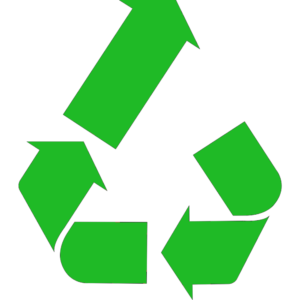 The process of transforming waste materials or unwanted products into new items of better quality, value, or usefulness . One popular form of upcycling in fashion is turning vintage or secondhand clothing into new pieces. Another form of upcycling involves transforming waste materials from seemingly unrelated industries into fashion items. Appcycle is a company that specializes in this type of upcycling, and one of their products is called Ringo-tex is an innovative leather alternative made using apple waste sourced from farms in Aomori prefecture, Japan.
The process of transforming waste materials or unwanted products into new items of better quality, value, or usefulness . One popular form of upcycling in fashion is turning vintage or secondhand clothing into new pieces. Another form of upcycling involves transforming waste materials from seemingly unrelated industries into fashion items. Appcycle is a company that specializes in this type of upcycling, and one of their products is called Ringo-tex is an innovative leather alternative made using apple waste sourced from farms in Aomori prefecture, Japan.
Don’t miss our previous blog post about upcycling and how it contributes to sustainability.
2.Slow Fashion
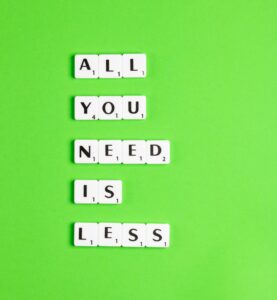 Slow fashion is an approach to fashion that emphasizes quality over quantity . Instead of buying from fast fashion brands which produce low-quality and disposable clothing at a high volume and high environmental cost, slow fashion encourages consumers to invest in higher-quality pieces that are made to last. By investing in high-quality pieces, consumers can enjoy their clothes for longer periods of time, reducing the amount of clothing that ends up in landfills.
Slow fashion is an approach to fashion that emphasizes quality over quantity . Instead of buying from fast fashion brands which produce low-quality and disposable clothing at a high volume and high environmental cost, slow fashion encourages consumers to invest in higher-quality pieces that are made to last. By investing in high-quality pieces, consumers can enjoy their clothes for longer periods of time, reducing the amount of clothing that ends up in landfills.
3. Eco-friendly (fashion)
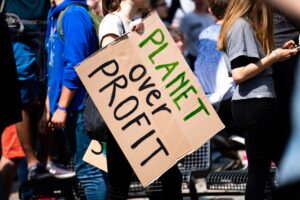 Refers to clothes that are produced in an environmentally sustainable and responsible manner . Methods include the use of sustainable materials like organic cotton, recycled fabrics, and biodegradable fibers, as well as minimizing waste and the carbon footprint throughout the supply chain.
Refers to clothes that are produced in an environmentally sustainable and responsible manner . Methods include the use of sustainable materials like organic cotton, recycled fabrics, and biodegradable fibers, as well as minimizing waste and the carbon footprint throughout the supply chain.
Read our previous blog post to find out out more about how to opt for eco-friendly products .
4. Ethical fashion
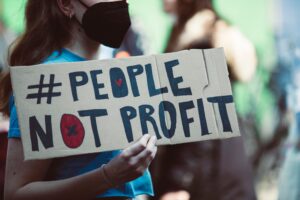 Fashion that is produced in a socially responsible and ethical manner , which means that workers involved in the production process are treated fairly with special attention to their rights. This includes fair wages, safe working conditions, and no exploitation. Ethical fashion also involves minimizing environmental impact and reducing the carbon footprint in the production process.
Fashion that is produced in a socially responsible and ethical manner , which means that workers involved in the production process are treated fairly with special attention to their rights. This includes fair wages, safe working conditions, and no exploitation. Ethical fashion also involves minimizing environmental impact and reducing the carbon footprint in the production process.
5. Sustainable Materials
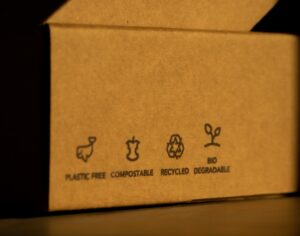 Materials that are responsibly sourced, manufactured, and used in a way that minimizes the environmental impact of the fashion industry. Sustainable materials can be natural, synthetic, or a combination of both. In addition to the materials themselves, sustainable materials also take into account the entire supply chain, from sourcing and manufacturing to transportation and distribution. Sustainable materials are produced using eco-friendly and ethical production methods, such as low-impact dyeing, water conservation, and fair labor practices. Some examples of sustainable materials in the fashion industry include organic cotton, hemp, linen, and recycled polyester.
Materials that are responsibly sourced, manufactured, and used in a way that minimizes the environmental impact of the fashion industry. Sustainable materials can be natural, synthetic, or a combination of both. In addition to the materials themselves, sustainable materials also take into account the entire supply chain, from sourcing and manufacturing to transportation and distribution. Sustainable materials are produced using eco-friendly and ethical production methods, such as low-impact dyeing, water conservation, and fair labor practices. Some examples of sustainable materials in the fashion industry include organic cotton, hemp, linen, and recycled polyester.
6.Fair Trade
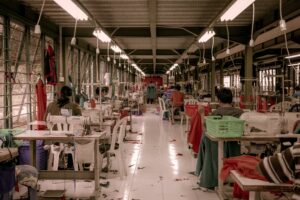 Fair Trade is a movement that promotes fair wages and better working conditions for workers in developing countries . It ensures that producers receive a fair price for their goods and also promotes sustainable farming and manufacturing practices. The goal of Fair Trade is to empower and provide economic opportunities for fashion industry workers.
Fair Trade is a movement that promotes fair wages and better working conditions for workers in developing countries . It ensures that producers receive a fair price for their goods and also promotes sustainable farming and manufacturing practices. The goal of Fair Trade is to empower and provide economic opportunities for fashion industry workers.
7. Cruelty Free
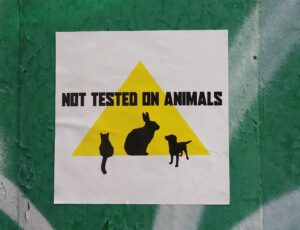 Refers to products that are manufactured and tested without causing harm to animals . This means that the products are not tested on animals, and do not contain any animal-derived ingredients. The cruelty-free movement has gained popularity in recent years, with many consumers seeking out products that align with their ethical beliefs and values. In addition to being more humane, cruelty-free products are often also environmentally-friendly and sustainably produced.
Refers to products that are manufactured and tested without causing harm to animals . This means that the products are not tested on animals, and do not contain any animal-derived ingredients. The cruelty-free movement has gained popularity in recent years, with many consumers seeking out products that align with their ethical beliefs and values. In addition to being more humane, cruelty-free products are often also environmentally-friendly and sustainably produced.
8. Zero-waste
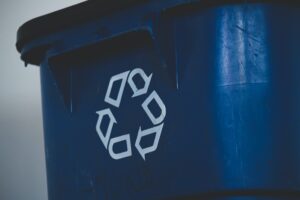 A philosophy that aims to minimize waste and reduce environmental impact by designing products and processes that generate little to no waste . This approach involves rethinking the entire lifecycle of a product, from design to disposal, in order to reduce waste at every stage. waste design focuses on creating products that are made from sustainable materials, are durable, and can be easily repaired or repurposed. In addition to product design, zero-waste also involves minimizing waste and emissions in production processes.
A philosophy that aims to minimize waste and reduce environmental impact by designing products and processes that generate little to no waste . This approach involves rethinking the entire lifecycle of a product, from design to disposal, in order to reduce waste at every stage. waste design focuses on creating products that are made from sustainable materials, are durable, and can be easily repaired or repurposed. In addition to product design, zero-waste also involves minimizing waste and emissions in production processes.
9.Circular Economy / Closed-loop Manufacturing
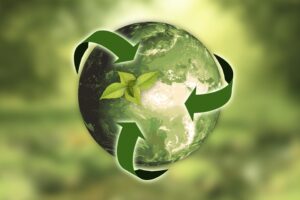 An economic system that prioritizes sustainability and waste reduction by keeping resources in use for as long as possible . It focuses on recovering and regenerating materials at the end of their useful life. This approach not only reduces but also conserves natural resources and reduces the need for new resource extraction.
An economic system that prioritizes sustainability and waste reduction by keeping resources in use for as long as possible . It focuses on recovering and regenerating materials at the end of their useful life. This approach not only reduces but also conserves natural resources and reduces the need for new resource extraction.
10.Circular Fashion
 The concept of circular fashion is based on the principles of the circular economy. Circular fashion is a relatively new concept that aims to transform the traditional linear fashion industry into a circular and sustainable one . It seeks to design and produce clothing in a way that minimizes waste, extends the life of fashion items, and promotes resource efficiency. This is achieved through various strategies, such as recycling old clothing, using sustainable materials, reducing the environmental impact of production processes, and designing clothes that can be easily repaired, repurposed, or. recycled
The concept of circular fashion is based on the principles of the circular economy. Circular fashion is a relatively new concept that aims to transform the traditional linear fashion industry into a circular and sustainable one . It seeks to design and produce clothing in a way that minimizes waste, extends the life of fashion items, and promotes resource efficiency. This is achieved through various strategies, such as recycling old clothing, using sustainable materials, reducing the environmental impact of production processes, and designing clothes that can be easily repaired, repurposed, or. recycled
In Conclusion
Understanding these terms and concepts is crucial for making informed choices as consumers . By familiarizing ourselves with terms such as upcycling, slow fashion, fashion, and circular fashion, we can consume conscientiously and support ethical sustainable companies that prioritize environmental and social responsibility. By taking small steps like choosing eco-friendly fashion brands, supporting fair trade, and opting for cruelty-free and zero-waste options, we can all make a difference in the fashion industry’s sustainability efforts.
appcycle is a company based in Aomori, Japan, that aims to reach a more sustainable future of the fashion industry. appcycle’s product, RINGO-TEX , is a vegan leather made out of apple food waste. To find out more about appcycle and RINGO- TEX, browse this website and follow ourInstagram .
Join us in our mission to create a more sustainable future by being a part of our Research & Development team! We are looking for individuals who are interested in upcycling or sustainable fashion and want to make a positive impact on the environment. If you are willing to help us develop innovative solutions for sustainable fashion, don’t hesitate to contact us today: CONTACT
This article was written by Anzelin












